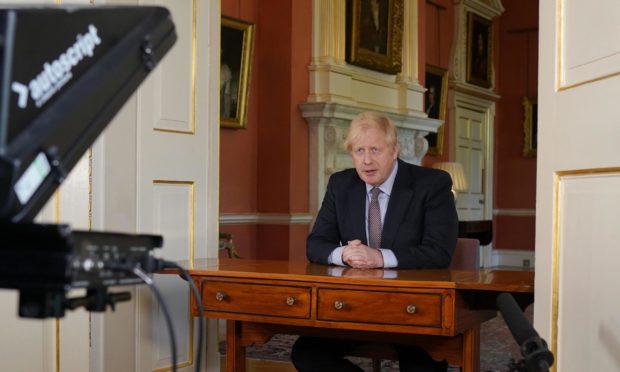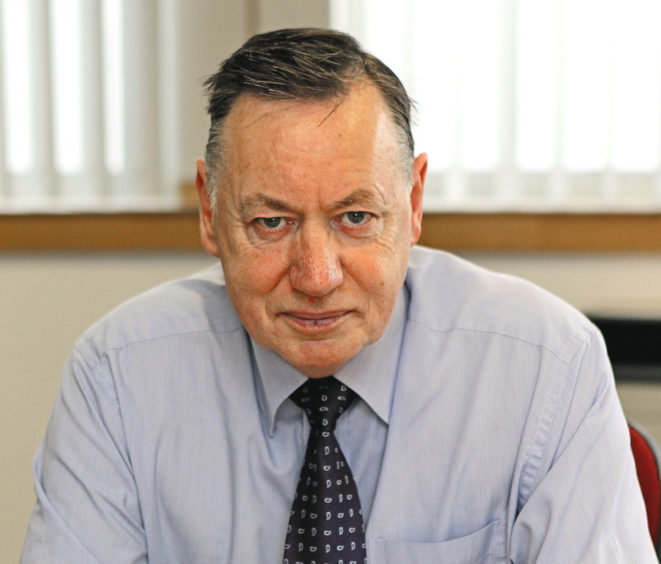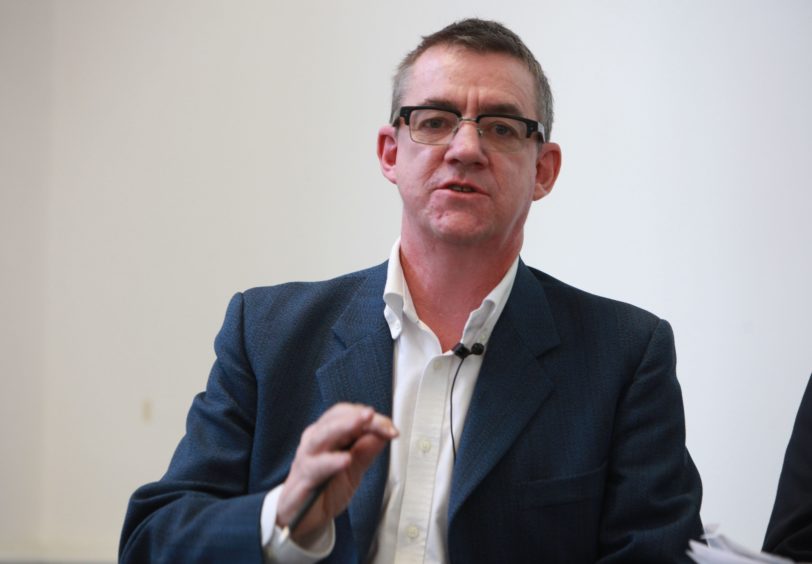Boris Johnson’s message to “stay alert, control the virus and save lives” has been parodied mercilessly by Matt Lucas and even managed to send Philip Schofield into outraged apoplexy.
But more seriously, it has resulted in a divergence between the Scottish and UK governments over how to deal with the coronavirus and has been attacked for creating confusion.
The prime minister’s Sunday night broadcast was supposed to signal an orderly and gradual return to work for some sections of the workforce and easing of the lockdown restrictions.
Confusing? Thanks to Matt Lucas who narrowed the all plan down to less then 20 seconds 😂 #JeremyVine pic.twitter.com/PZFXYQSW28
— Celio (@CelioCyl) May 11, 2020
Prefaced by unhelpful headlines suggesting that there was going to be major relaxing of lockdown, the build up to Sunday’s statement saw the prime minister row back to a more cautious approach to manage expectations.
Then the launch of the new slogan in the Sunday papers irritated Ms Sturgeon and her ministers, who claimed it had not been run past by them and were unsure of what it meant.
Meanwhile, the broadcast itself later that day talked of actively encouraging a return to work for those who cannot work from home – a position that raised questions about how people could be kept safe.
Further complications arose over the UK Government’s new guidance for meeting people outside your own household. The UK Government issued a clarification after Dominic Raab incorrectly told the Today programme that someone could meet both their parents at the same time “if there’s two metres apart”.
In fact, the guidance, which only applies in England, is that people can only meet one person at a time outside.
With controversy surrounding Mr Johnson’s approach, we asked some prominent political spin doctors for their view on the prime minister’s messaging and media strategy.
it's got to be really bad when even Phillip Schofield is slamming youpic.twitter.com/itsVYW31tA
— end of daves ❄️ 🥕 🧻 (@davemacladd) May 11, 2020
Ramsay Jones, David Cameron’s former special adviser on Scottish affairs
Ramsay Jones, who was a Conservative strategist for many years, admitted the introduction of the “stay alert” message had been premature but maintained the row had been politicised and overblown.
“When Scotland was moving slightly differently from England the consensus here was: that’s fine. Therefore the reverse must also be true,” Mr Jones said.
“In Scotland we banned mass gatherings a bit earlier. We were different on construction. We closed schools a bit earlier by a few hours. Whether it is a tightening or a loosening, my point is that already things are being done differently and if it is okay for one bit of the UK to do it differently from another then the reverse has to be true as well. So can everybody just calm down and take some of the politics out of it?”
I find it troubling that the public can’t take on board that staying alert can also mean stay at home unless you’re going out for permitted reasons. If fact, at that level, nothing has changed.
— Ramsay Jones CBE (@Ramsay59) May 10, 2020
I agree. I would have chosen differently. But I still think the fuss is being overly whipped up and is in itself unhelpful.
— Ramsay Jones CBE (@Ramsay59) May 10, 2020
Mr Jones argued that exiting lockdown should be driven by “geography and demography” – “not politics”.
“I just worry that over the last few days, for some people, politics has suddenly – instead of being on the backburner – rushed to the front of the stove. This has happened too fast and, in my view, wrongly. Everyone just needs to calm down a little,” Mr Jones said.
“There are two debates – one about what measure is right for which part of the UK and there is a second debate about the messaging row. If you read twitter, everyone is rushing to a judgement and, as far as I can see, it is mainly based on their constitutional political position
“People claiming what does stay alert mean? Well, actually, they all know what it means. The slogan should not matter as much as the guidance. If people understand the guidance there shouldn’t be a problem. But the sad reality is that sometimes for people to get the guidance they need a very snappy slogan.
“My quibble with the UK Government is that moving to the alert one has just been slightly early. I actually do not have a problem with it as a slogan. Because at some point the whole of the UK will be easing out of lockdown, where stay at home is no longer the core message. And at some point we are all going to have to move away from that. The question is when should that be done?”
Campbell Gunn, former adviser to Alex Salmond and Nicola Sturgeon
Campbell Gunn, who was Sunday Post political editor before advising SNP governments, suggested those close to the prime minister were guilty of “over-briefing” journalists.
“It seems that particularly last week, there was a considerable amount of over-briefing by Westminster press officers or, more likely, special advisers, resulting in the ‘freedom Monday’ headlines we saw in some of the London papers which circulate in Scotland,” Mr Gunn said. “That was not quite the message from the Prime Minister when he made his statement on Sunday night.
“The main problem at Westminster seems to be pre-briefing and over-egging of statements. I know from experience both as a political editor and as a special adviser the pressure journalists put on spinners to give them ‘a line’, and it seems that last week the temptation to comply may have been too great for some. Or was this perhaps a deliberate strategy? Many of us are wondering who is actually in control of communications at Westminster. It does not seem to be the prime minister.
“Spinners have to trail statements in advance, that’s part of their job. But it should only be done accurately and after agreement with the minister. Often, saying as little as possible and waiting for the minister to make their statement is the best policy, no matter how confused that statement may turn out to be.
“And of course, these days such confusions are compounded by social media, putting more responsibility on mainstream media and Government spin doctors to get the message right.”
John McTernan was an adviser to Tony Blair and Australian Prime Minister Julia Gillard
John McTernan, who worked for Labour governments during the Tony Blair and Gordon Brown era, said Mr Johnson needs to get more influential voices onside to deliver his lockdown exit strategy.
“The essence of political messaging in emergency – and this is an emergency – is clarity. If the prime minister says ‘stay at home’ we all know what we can do. If the prime minister says ‘stay alert to control the virus’, it is really hard to know what we can do,” Mr McTernan said.
“What is needed in a complicated situation is other voices of authority backing up the prime minister. So if he (Boris Johnson) had said `stay alert, control the virus’ and then said we should go back to work, if it was safe. If the CBI and the TUC had said the same and they had also said how it could be safe to travel to work and how to be safe at work, then I think there would have been more confidence.
“The challenge the prime minister has is that one person can lead us into a lockdown, but many people are going to have to lead us out of the lockdown.
“The same thing is going to be true in Wales, Northern Ireland and Scotland – no matter how much people trust Mark Drakeford, Arlene Foster and Nicola Sturgeon to do the right thing, which they all are doing, the Scots, Welsh and Northern Irish are going to want to hear other voices backing any change. So in the devolved administrations they will need business leaders and union leaders saying it is safe to go back to work and explaining why they believe it is safe.
“A clear message from one person can lockdown a country. Authoritative messages from a lot of voices are required as we make our way back to what is no longer business as usual.
“You only get one chance to make a first impression, the message should be given in one go with a whole load of back up. What we’ve had is a message being trailed, then walked back from, then redefined. Then re-trailed then finally made with detail coming today. And more detail coming during the week. So there’s basically been a week’s worth of announcements when there needed to be one announcement backed up by maybe five or six different initiatives and maybe five or six different documents.
“You get a clear message if the narrative is clear and the audience is clear. If the audience is the nation, they should get one story and then it should be backed up.”





